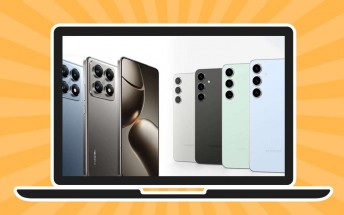Samsung and Apple are locked in a fierce competition for leadership in the global smartphone market. Currently, the Korean brand holds a slight lead, even as its rival achieves record sales. According to Canalys, a market analysis company, the top three brands are Samsung, Apple, and Xiaomi, with the gap between the top two narrowing significantly.
In the third quarter of 2024, the two leading smartphone manufacturers recorded a difference of only 3 million units sold. Samsung sold 57.5 million phones, while Apple sold 54.5 million, with Samsung holding 19% of the market share. In comparison, Samsung’s results represent a 2% decrease from the same period the previous year. Apple, on the other hand, saw a 9% increase and holds 18% of the market share.
One key factor in Apple’s growth is the launch of the iPhone 16 lineup in September 2024. The new models—iPhone 16, iPhone 16 Pro, and iPhone 16 Pro Max—introduced significant advancements to Apple’s product portfolio. The company’s marketing has centered on its proprietary artificial intelligence (AI) system, “Apple Intelligence.” Recently launched, these intelligent features promise to enhance the user experience by generating images and emojis, summarizing calls, assisting with writing, and improving Siri’s capabilities.
Xiaomi in Third Place
Xiaomi secured third place, selling 42.8 million devices and capturing 14% of the market share. OPPO and vivo followed, with 28.6 million and 27.2 million units sold, respectively. Their strong presence in Asia contributed to their success.

Smartphone Market Grows with AI
The study also revealed that global smartphone sales reached 309.9 million units in the third quarter of 2024, marking a 5% growth compared to the previous year. These figures represent the highest sales since 2021. Canalys notes that this growth is driven by numerous launches from various brands, making the market more diverse.

Manufacturers continue to invest in models with attractive cost-benefit ratios, encouraging consumers to upgrade their smartphones. Companies like Samsung and Apple are increasingly focusing on AI and longer software update cycles as part of their strategy to attract consumers.
However, rising component costs have made profitability more challenging in the long term. In response, smartphone manufacturers are turning their attention to emerging markets, seeking new growth opportunities.

